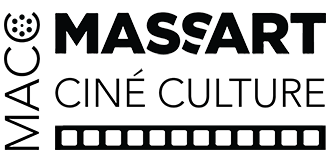FALL 2018 MASSART CINÉ CULTURE SCREENINGS
ANTO ASTUDILLO
Nov. 20 2018
MassArt Design and Media Center
ANTO ASTUDILLO | Anto (they/them) is a queer experimental filmmaker, curator and performance artist from Santiago, Chile, living and working in Brooklyn, NY. Rooted in physical theater, Anto explores dynamic interconnections between experimental narrative, poetic documentary filmmaking and performance art. As a graduate student at Emerson College in the Film and Media Art (MFA) program, they co-directed the New England Graduate Media Symposium for three consecutive years. Anto has taught 16mm film production, experimental film, dance film and performance at Emerson College, Keene State College and Massachusetts College of Art and Design. Anto is one of the founding members of the AgX Film Collective, taking the role of organizing screenings to promote alternative practices in filmmaking.
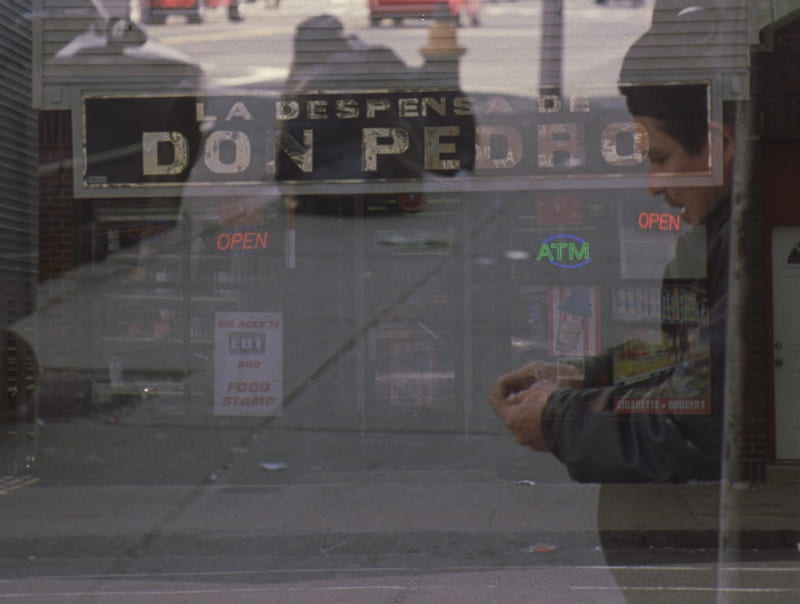
Anto is a 2017 Flaherty Seminar Ford Foundation Curatorial Fellow and a 2020 Oberhausen Film Festival Seminar Fellow (postponed due to Covid-19 crisis). Their recent work has been screened in several venues, including Mills Gallery at Boston Center for the Arts, Echo Park Film Center, Montreal Underground Film Festival, Artifact Small Format Film Festival, Crater-Lab, Zumzeig CineCooperativa, Hot Bits Film Festival, Anthology Film Archives and Craig Baldwin’s film series Other Cinema in San Francisco. Currently, Anto curates film screenings as an independent programmer and is a Program Coordinator at The Flaherty. Since January, 2020 Anto has been touring with an experimental film screening about Chile’s recent social uprising “The People’s Revolt” (the films have been touring virtually due to the Covid-19 crisis).
FERN SILVA
Oct. 30 2018
MassArt Design and Media Center
FERN SILVA | Fern Silva (b. 1982, USA/Portugal) is an artist who primarily works in 16mm. His films consider methods of narrative, ethnographic, and documentary filmmaking as the starting point for structural experimentation. He has created a body of film, video, and projection work that has been screened and performed at various festivals, galleries, museums and cinematheques including the Toronto, Berlin, Locarno, Rotterdam, New York, London, Melbourne, and Hong Kong International Film Festivals, Anthology Film Archives, Gene Siskel Film Center, Cinemateca Boliviana, Museum of Art Lima, Brooklyn Academy of Music, Museum of Contemporary Art Chicago, New Museum, Greater New York at MOMA P.S.1, and Cinema du Reel at the Centre Georges Pompidou.
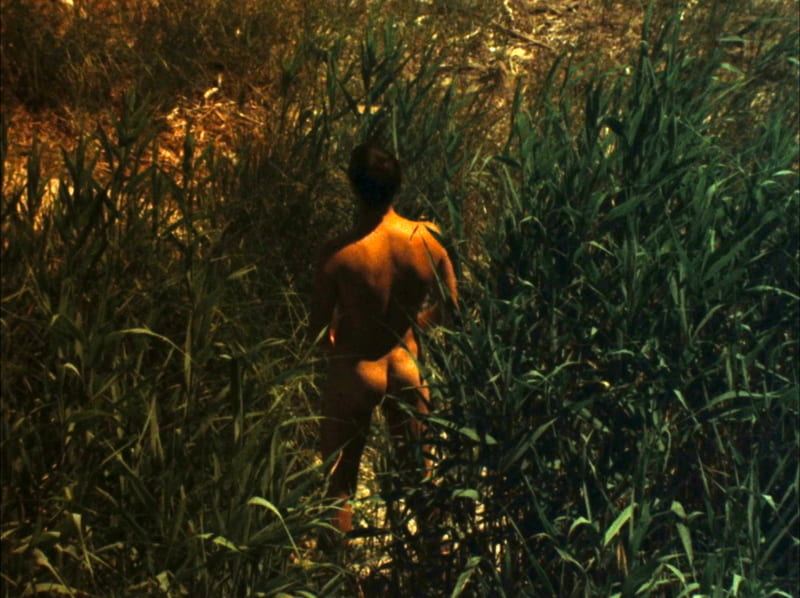
He has organized and curated screenings at venues including the Nightingale Cinema, Gallery 400, and DINCA Vision Quest in Chicago and has received support from the New York Foundation for the Arts, the New York State Council on the Arts, Jerome Foundation, and MacDowell Colony. His work has been featured in publications including Film Comment, Cinema Scope, Filmmaker Magazine, Millennium, and Senses of Cinema. He studied art and cinema at the Massachusetts College of Art and Bard College and is currently a fellow at the Radcliffe Institute for Advanced Studies at Harvard University.
ANOCHA SUWICHAKORNPONG
By the time it gets dark
Oct. 23 2018
MassArt Design and Media Center
ANOCHA SUWICHAKORNPONG | Anocha Suwichakornpong is a filmmaker whose work is informed by the socio-political history of Thailand. Her films have been the subject of retrospectives at the Museum of the Moving Image, New York; TIFF Cinematheque, Toronto; Cinema Moderne, Montreal; and Olhar De Cinema, Brazil. Mundane History, her first feature, won numerous awards including the Tiger Award at Rotterdam. An allegory for the current political situation in Thailand, the film focuses on the relationship between a father and his paraplegic son. Her third feature, Krabi 2562, co-directed with British filmmaker Ben Rivers, explores a town in southern Thailand. The film also premiered at Locarno and is currently touring the festival circuit.
Anocha received her MFA from Columbia University, with her thesis film, Graceland, becoming the first Thai short film to be officially selected by Cannes Film Festival. In 2017, together with Visra Vichit-Vadakan and Aditya Assarat, she founded Purin Pictures, an initiative to support Southeast Asian cinema. Currently, Anocha is a visiting lecturer at the Department of Art, Film, and Visual Studies at Harvard University.
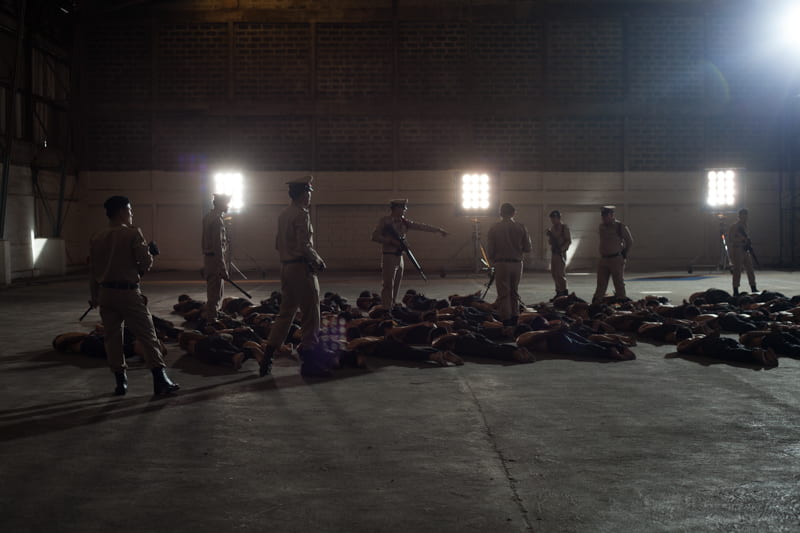
BY THE TIME IT GETS DARK | By the Time It Gets Dark, Anocha’s second feature, centres around a student massacre that took place in 1976 by Thai state forces and far-right paramilitaries at Thammasat University in Bangkok. It premiered at Locarno Film Festival and was presented at festivals worldwide, including Toronto, BFI London, Viennale, and Rotterdam. By the Time It Gets Dark film won three Thailand National Film Awards including Best Picture and Best Director. In 2017, it was chosen as Thailand’s Oscar entry for Best Foreign Language Film.
SKY HOPINKA
Oct. 16 2018
MassArt Design and Media Center
SKY HOPINKA | Sky Hopinka (Ho-Chunk Nation/Pechanga Band of Luiseño Indians) was born and raised in Ferndale, Washington and spent a number of years in Palm Springs and Riverside, California, Portland, Oregon, and Milwaukee, Wisconsin. In Portland he studied and taught chinuk wawa, a language indigenous to the Lower Columbia River Basin. His video, photo, and text work centers around personal positions of Indigenous homeland and landscape, designs of language as containers of culture expressed through personal, documentary, and non fiction forms of media. He received his BA from Portland State University in Liberal Arts and his MFA in Film, Video, Animation, and New Genres from the University of Wisconsin-Milwaukee, and currently teaches at Bard College in Film and Electronic Arts.

His work has played at various festivals including ImagineNATIVE Media + Arts Festival, Images, Wavelengths, Ann Arbor Film Festival, Sundance, and Projections. His work was a part of the 2016 Wisconsin Triennial and the 2017 Whitney Biennial and the 2018 FRONT Triennial. He was a guest curator at the 2019 Whitney Biennial and was a part of Cosmopolis #2 at the Centre Pompidou. He was awarded jury prizes at the Onion City Film Festival, the More with Less Award at the 2016 Images Festival, the Tom Berman Award for Most Promising Filmmaker at the 54th Ann Arbor Film Festival, the New Cinema Award at the Berwick Film and Media Arts Festival and the Mary L. Nohl Fund Fellowship for Individual Artists in the Emerging artist category for 2018. He was a fellow at the Radcliffe Institute for Advanced Study at Harvard University in 2018- 2019, a Sundance Art of Nonfiction Fellow for 2019, a recipient of an Alpert Award for Film/Video, and is a 2020 Guggenheim Fellow.
DARREN COLE
Oct. 02 2018
MassArt Design and Media Center
DARREN COLE | Nominated and featured by Art New England Magazine on the cover of the 2019 New Emerging Artists Series, Darren Cole is one of the most exciting young video artists working today. As a Director of Photography, Cole completed the music video “Im Nothing” for the Violent Femmes’ Featuring Stefan Janoski. Which premiered at the MKE Film Festival. Cole was also a contributor in the camera department on the film “Markie in Milwaukee” which was Honorable Mention for the Grand Jury Award at SlamDance in 2019. Producing films for director Nora Jaenicke, Cole has produced four films in the past three years with “Proof” still in festival circulation. The quartet of stories (“Joyce”, “Whales”, “Between Seconds”, and “Proof”) has been the recipient of over 40 international awards.

Most recently, Cole was Co-Producer for “Streaming Outta Fenway” featuring Boston’s own Dropkick Murphys and a Double Play with Bruce Springsteen which reached 9 million viewers globally. The show raised $750,000 for multiple charities during the wake of Covid-19 this past spring. It was also the first ever musical performance to be lived-streamed from a major U.S. stadium.
As a Visiting Assistant Professor at MassArt, Cole researches the intersection of art and technology as a tool for communication that promotes equity and social justice.
ROSS McELWEE
Bright Leaves
Sep. 25 2018
MassArt Design and Media Center
ROSS McELWEE | Ross McElwee grew up in North Carolina. He graduated from Brown University and later from Massachusetts Institute of Technology where he received a MS in filmmaking. McElwee started producing and directing documentaries in 1976.
Ross McElwee has made seven feature-length documentaries as well as several shorter films. Most of his films were shot in his homeland of the American South, among them the critically acclaimed Sherman’s March, Time Indefinite, Six O’Clock News, and Bright Leaves.
McElwee’s films have been included in the festivals of Berlin, London, Vienna, Rotterdam, Florence, Sydney, and Wellington. Retrospectives include the Museum of Modern Art; the Art Institute of Chicago; the American Museum of the Moving Image, New York; and États généraux du film documentaire in Lussas, France. McElwee has received fellowships and grants from the Guggenheim Foundation, the Rockefeller Foundation, the American Film Institute, and the Massachusetts Arts Council.
Ross McElwee has been teaching filmmaking at Harvard University since 1986 where he is a professor in the Department of Visual and Environmental Studies.
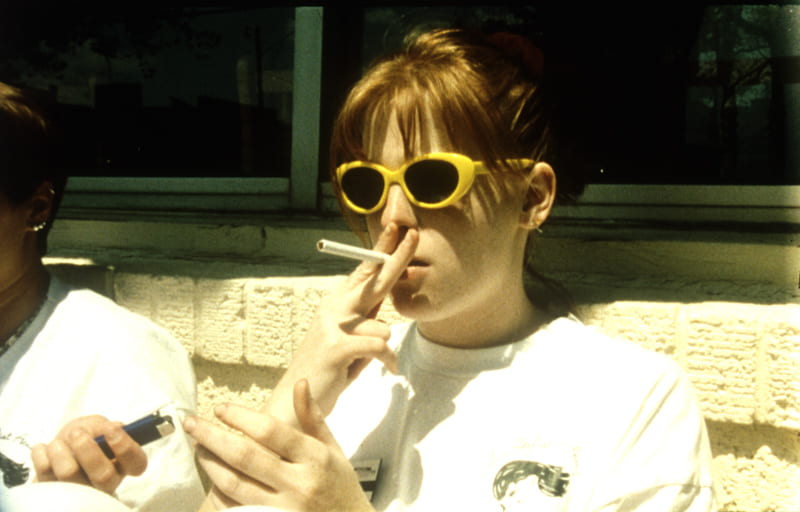
BRIGHT LEAVES | This film describes a journey taken across the social, economic, and psychological tobacco terrain of North Carolina by a native Carolinian whose great-grandfather created the famous brand of tobacco known as “Bull Durham.”
Bright Leaves is a subjective, autobiographical meditation on the allure of cigarettes and their troubling legacy for the state of North Carolina. It’s about loss and preservation, addiction and denial. And it’s about filmmaking – homemovie, documentary, and fiction filmmaking – as the filmmaker fences with the legacy of an obscure Hollywood melodrama that is purportedly based on his great-grandfather’s life.
Bright Leaves explores the notion of legacy – what one generation passes down to the next – and how this can be a particularly complicated topic when the legacy under discussion is a Southern one and is tied to tobacco.
